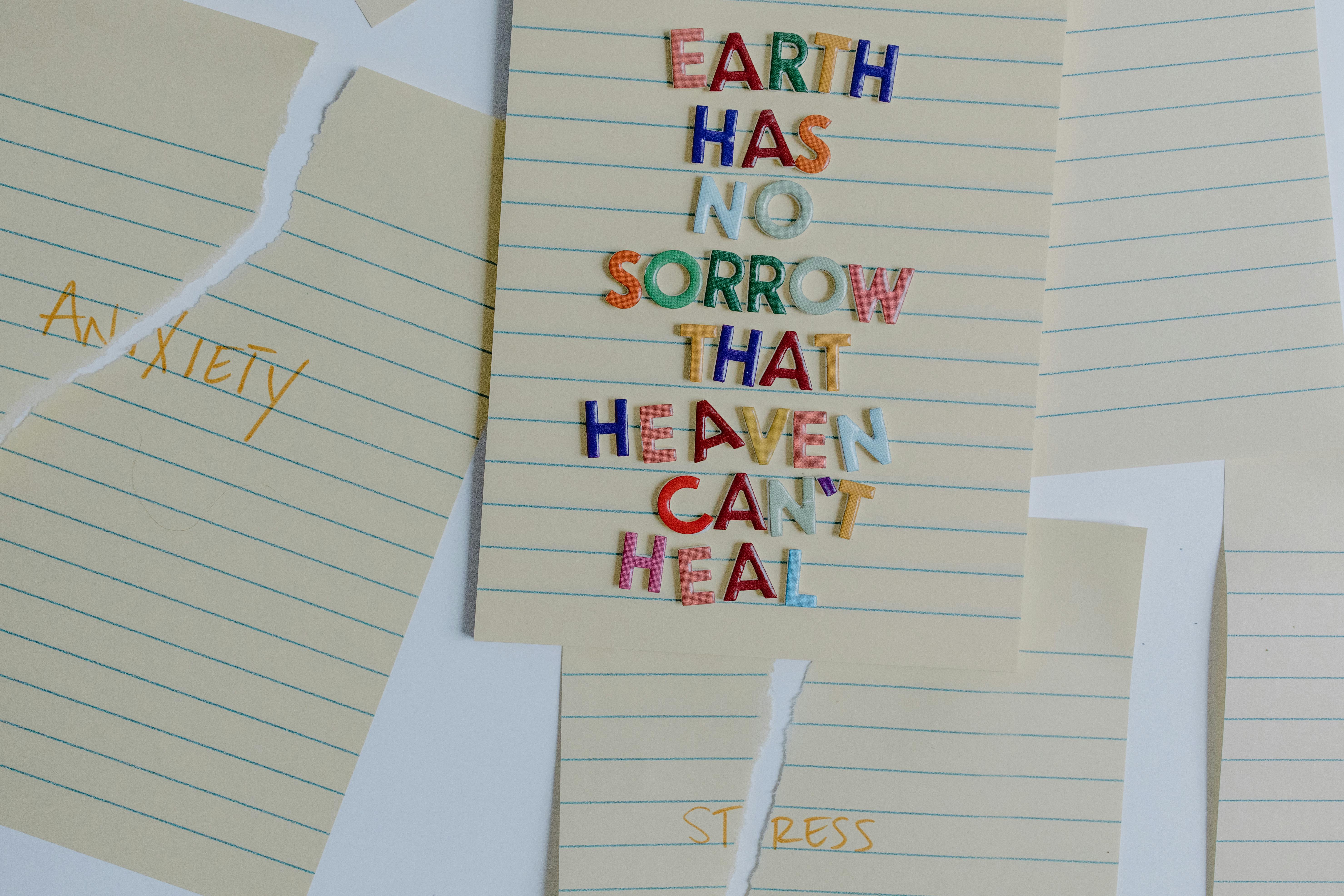
I. Introduction
Emotional healing is a journey, an odyssey through the often tumultuous waters of our inner selves. For women, this journey can be particularly challenging due to societal pressures, expectations, and the myriad roles they play in their personal and professional lives. Emotional healing is not just about feeling better; it’s about understanding and processing pain, joy, and everything in between. It’s about reclaiming one’s voice in a world that often attempts to silence it. This is where music therapy comes into play—a vibrant, sometimes overlooked avenue for emotional healing that can serve as a powerful tool in navigating the complexities of mental wellness.
Music therapy harnesses the intrinsic power of music to facilitate emotional expression and healing. It’s not merely about listening to melodies; it’s about engaging with sound in a therapeutic context that promotes healing and well-being. As we delve into the realm of music therapy, we will also challenge conventional wellness beliefs that often leave women feeling boxed in or unheard. The purpose of this exploration is to unveil quotes that resonate deeply with women’s experiences, inspiring them to embrace music therapy as a viable path to emotional healing. These words can ignite a fire of self-discovery, offering insights that provoke thought and foster empowerment.
II. Understanding Music Therapy
Music therapy is a well-established field that dates back to the early 20th century, evolving from the use of music as a form of entertainment into a recognized therapeutic discipline. Defined broadly, music therapy is the clinical and evidence-based use of music interventions to accomplish individualized goals within a therapeutic relationship. The practice is grounded in psychological principles and is often employed in various settings—from hospitals to schools and private practices. The American Music Therapy Association (AMTA) outlines how music therapy can aid in addressing emotional, cognitive, and social needs, promoting overall wellness.
The mechanisms by which music therapy operates are both psychological and physiological. On a psychological level, music can evoke emotions and memories, facilitating conversations around feelings that may be challenging to express verbally. Physiologically, music has been shown to impact heart rate, blood pressure, and even cortisol levels, which are associated with stress. Research indicates that engaging with music can activate brain regions involved in emotion regulation, ultimately helping individuals process their feelings more effectively. The beauty of music therapy lies in its ability to create a safe space for emotional exploration, allowing individuals to tap into their feelings and express them authentically.
III. The Intersection of Music Therapy and Gender
Women face a unique set of emotional challenges, often exacerbated by societal expectations that dictate how they should feel, behave, and respond to life’s trials. The pressure to maintain a facade of composure and strength can lead to emotional suppression, which in turn can contribute to anxiety, depression, and other mental health issues. A study by the World Health Organization highlights that women are more likely to experience mental health disorders than men, a statistic that underscores the importance of tailored approaches to emotional healing.

Music therapy provides a lens through which these gender-specific challenges can be addressed. By allowing women to engage with music, this therapeutic approach encourages emotional expression in a way that feels safe and validating. It acknowledges the intricacies of women’s experiences, from the challenges of balancing multiple roles to the emotional labor often expected of them. Music becomes a medium through which women can explore their feelings, challenge societal norms, and ultimately reclaim their emotional narratives. This is not merely therapy; it’s a revolutionary act of self-affirmation.
IV. The Power of Quotes in Healing
Words have an unparalleled ability to inspire, provoke thought, and catalyze change. The psychological impact of affirmations and quotes is profound; they can shift mindsets, instill hope, and provide comfort during turbulent times. Research published in the Journal of Positive Psychology highlights that positive affirmations can significantly improve self-esteem and emotional well-being. In the context of music therapy, quotes can serve as powerful reminders of resilience, strength, and the capability to heal.
Sharing wisdom through quotes in music therapy is not just about the words themselves; it’s about the stories and experiences they encapsulate. When a woman reads or hears a quote that resonates, it can stir something deep within her, prompting self-reflection and encouraging her to engage more fully with her emotional landscape. These quotes can frame her experiences in a new light, fostering a sense of connection to others who have faced similar struggles. In essence, they become beacons of hope, guiding women on their path to healing.
V. Ten Powerful Music Therapy Quotes
1. “Where words fail, music speaks.” – Hans Christian Andersen. This timeless quote encapsulates the essence of music therapy. For many women, the struggle to articulate feelings can be overwhelming. Music provides an alternative language, one that transcends barriers and allows for deeper emotional expression. In moments of grief, joy, or confusion, turning to music can provide comfort and understanding that words often cannot.

2. “Music can change the world because it can change people.” – Bono. This quote speaks to the transformative power of music, especially in the context of emotional healing. Women often find solace in the shared experience of music, creating bonds that foster understanding and support. This communal aspect of music therapy can be particularly healing, as it affirms that they are not alone in their struggles.
3. “If you could hear my heart, it would tell you I love you.” – Unknown. This quote beautifully illustrates the idea that music can convey feelings that are often too complex to express verbally. For women navigating tumultuous emotions, music therapy allows them to connect with their feelings and communicate them in a more profound way, fostering intimacy in relationships.
4. “Music is the shorthand of emotion.” – Leo Tolstoy. This quote underscores the idea that music can distill complex emotions into something tangible and relatable. Women can use music therapy to explore the nuances of their feelings, allowing for a more comprehensive understanding of their emotional states.
5. “Dance is the hidden language of the soul.” – Martha Graham. While not strictly about music, this quote emphasizes the connection between movement and emotional expression. Music therapy often incorporates movement, inviting women to physically embody their emotions, which can be a liberating experience.

6. “Music gives a soul to the universe, wings to the mind, flight to the imagination, and life to everything.” – Plato. This quote speaks to the universal impact of music. For women, engaging with music therapy can breathe life into their emotional journeys, allowing them to explore new dimensions of their experiences.
7. “The only thing better than singing is more singing.” – Ella Fitzgerald. This light-hearted quote reminds us of the joy that music can bring. In the context of music therapy, this joy can be a powerful tool for healing, lifting spirits and fostering resilience.
8. “Music can be a source of comfort and a way to cope.” – Unknown. This statement resonates deeply, especially for women facing emotional challenges. Music therapy offers a structured way to harness the comfort of music, turning it into a proactive tool for coping with stress and anxiety.
9. “Life is a song, love is the music.” – Unknown. This quote beautifully highlights the interconnectedness of life’s experiences and the emotions they evoke. Music therapy encourages women to embrace all aspects of their lives, weaving their narratives into a harmonious melody of growth and healing.

10. “Let the music heal your soul.” – Unknown. This simple yet profound quote encapsulates the essence of music therapy. It serves as a reminder that music has the power to transcend pain, offering solace and healing in ways that traditional methods may not.
VI. Challenging Conventional Wellness Beliefs
Traditional wellness approaches often emphasize talk therapy, medication, and structured routines. While these methods can be effective for many, they may not resonate with everyone, particularly women who often feel constrained by rigid definitions of wellness. A report by the National Institute of Mental Health highlights that women may benefit from more holistic approaches that consider emotional, social, and physical well-being. Music therapy presents a refreshing alternative, offering a more dynamic and engaging way to connect with one’s emotions.
Moreover, conventional methods can sometimes overlook the importance of emotional expression and creativity as tools for healing. Music therapy challenges these limitations by inviting individuals to engage with their feelings through sound, rhythm, and movement. Personal testimonials often reveal profound transformations; women recount experiences of breakthrough moments during sessions where music allowed them to confront and process emotions they had long buried. These stories illustrate that wellness is not a one-size-fits-all journey; it’s a deeply personal exploration that can take many forms.
VII. Implementing Music Therapy in Daily Life
Incorporating music therapy into daily life doesn’t require a degree in music or therapy; it’s about finding ways to engage with music that resonate personally. One practical tip is to create personalized playlists that reflect various emotional states or experiences. Listening to these curated collections during different times—whether feeling joyful, sad, or contemplative—can serve as a form of emotional validation and exploration. Research has demonstrated that music can significantly influence mood, making this an accessible and empowering tool for self-care.

Additionally, seeking out local music therapy programs or professionals can provide structured support for those looking to delve deeper into their emotional healing. Many communities offer resources for finding qualified music therapists who can tailor sessions to individual needs. For those who prefer a more self-guided approach, engaging in activities like singing, playing an instrument, or even dancing can be incredibly therapeutic. The key is to find what resonates and to make a conscious effort to incorporate music into the fabric of daily life.
VIII. Conclusion
Music therapy offers a unique and powerful avenue for emotional healing, particularly for women navigating the complexities of their emotional landscapes. By challenging conventional wellness beliefs and embracing the transformative power of music, individuals can unlock new pathways to understanding and healing. The quotes explored throughout this article serve as reminders of the profound impact that music can have on our emotional well-being. They inspire us to embrace our experiences, validate our feelings, and discover the healing potential within ourselves.
As we conclude this exploration, consider this a call to action. Explore the world of music therapy, whether through formal programs or personal playlists. Allow yourself the freedom to engage with sound, and remember that healing is a journey—one that can be enriched by the melodies that accompany us along the way.
IX. Frequently Asked Questions (FAQ)
What is music therapy and how does it work?
Music therapy is a clinical and evidence-based practice that uses music interventions to address individual needs. It works by facilitating emotional expression, processing feelings, and promoting wellness through tailored music experiences.
Can music therapy be used alongside other forms of therapy?
Yes, music therapy can complement other therapeutic approaches, providing additional tools for emotional exploration and healing.
Are there specific genres of music that are more effective for emotional healing?
Different genres can evoke various emotional responses. Generally, personal preference plays a significant role in the effectiveness of music for healing.
How can I find a qualified music therapist?
Resources such as the American Music Therapy Association (AMTA) can help locate certified music therapists in your area.
What are some self-guided music therapy techniques I can try at home?
Creating playlists, engaging in spontaneous dance, or simply listening to music mindfully can all serve as effective self-guided techniques for emotional healing.
How can music therapy help with specific issues such as anxiety or depression?
Music therapy can help manage symptoms of anxiety and depression by promoting relaxation, facilitating emotional expression, and providing a safe space for exploring feelings.








